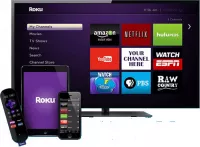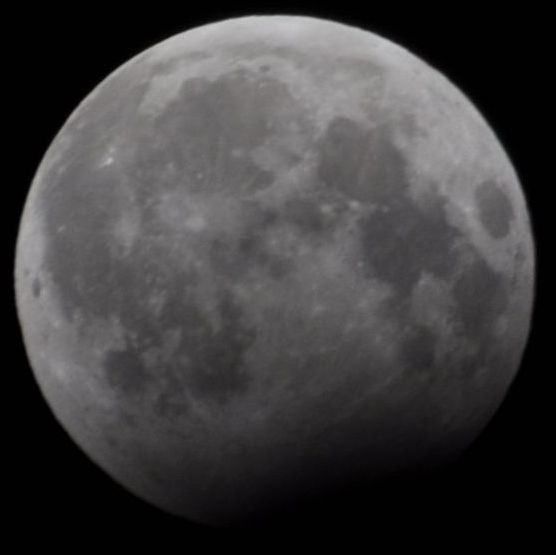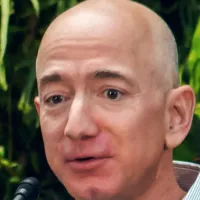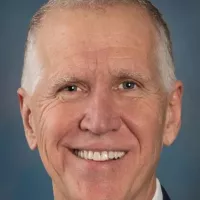BBC iPlayer is the BBC's video on demand service, providing over-the-top content accessible on various devices like mobile phones, PCs, and smart TVs. Available to UK viewers, the service is free from commercials but requires a valid TV Licence for legal use. It offers a wide range of BBC programmes for on-demand viewing.
1984: Reference to This is Spinal Tap
The volume control of the iPlayer goes up to 11, apparently a nod to a scene about an amplifier volume control that goes up to eleven in the rock mockumentary This Is Spinal Tap (1984).
2004: First public trial of iPlayer
In the summer of 2004, the original iPlayer service underwent its first three-month public trial.
October 2005: Second public trial of iPlayer
In October 2005, a five-month trial of iPlayer was conducted by five thousand broadband users.
2005: iPlayer trials use Windows Media DRM
During the 2005 iPlayer trials, the digital rights management (DRM) system used was based on Microsoft's Windows Media DRM. This caused concerns about cross-platform availability, as this technology was only available for Windows XP.
2005: Ben Lavender conceives the BBC iPlayer
In 2005, Ben Lavender, a BBC employee, conceived the concept for the BBC iPlayer.
February 2006: End of second iPlayer public trial
On February 28, 2006, the five-month public trial that began in October 2005 of the iPlayer ended.
November 2006: Start of limited user trial
On November 15, 2006, a new improved iPlayer service had another very limited user trial.
2006: iPlayer trials continue with Windows Media DRM
In 2006, iPlayer trials continued to use Microsoft's Windows Media DRM for digital rights management, causing concerns about cross-platform availability.
April 2007: iPlayer receives BBC Trust approval
On April 30, 2007, the iPlayer received the approval of the BBC Trust.
July 2007: Open beta for Windows XP and Windows Server 2003 launched
At midnight on July 27, 2007, an open beta for Windows XP and Windows Server 2003 was launched, but only a fixed number of people were able to sign up for the service initially.
August 2007: Petition against a BBC decision
In August 2007, a controversial decision by the BBC led to a petition being posted on 10 Downing Street's e-petition website, which reached 16,082 signatures by August 20, 2007.
August 2007: Free Software Foundation stages protest outside BBC Television Centre
On August 14, 2007, the Free Software Foundation (FSF) held a demonstration outside BBC Television Centre. Peter T. Brown of the FSF criticized the BBC for insisting that viewers use proprietary technology to watch BBC programs, which he claimed was a break from previous tradition.
October 2007: Strategic relationship with Adobe announced
On 16 October 2007, the BBC announced a strategic relationship with Adobe that would bring a limited streaming-only version of the iPlayer to Mac and Linux users and Windows users who cannot or do not wish to use the iPlayer download service, such as Windows 9x users.
December 2007: iPlayer exceeds expectations with 3.5 million programmes streamed
Before its launch in December 2007, the BBC expected iPlayer to reach half a million users in its first six months. However, 3.5 million programs were streamed or downloaded in the first three weeks alone, which The Guardian described as "remarkably promising".
December 2007: Streaming service launched
On 13 December 2007, the streaming service was launched, offering most programmes for up to seven days after broadcast.
December 2007: BBC iPlayer streaming version launched
On December 13, 2007, the BBC launched the streaming version of iPlayer using Adobe Flash software, promoting it with the tagline 'Making the unmissable... unmissable' over the Christmas period, and the service came out of beta on December 25, 2007. The streaming version offered replays of programs from national BBC TV channels and S4C for the last seven days.
December 2007: BBC iPlayer goes live
On December 25, 2007, the BBC iPlayer officially left beta and went live.
2007: BBC iPlayer launch
In 2007, the BBC iPlayer was launched, providing a new way to view or listen to BBC content.
January 2008: Streaming outnumbers downloads on iPlayer eight to one
In January 2008, streaming of programs on iPlayer outnumbered downloads by eight to one, contributing to the service's impressive growth in its first year.
April 2008: iPlayer development cost revealed
By 8 April 2008, the iPlayer had cost £6 million to develop, according to a BBC reveal in response to a Freedom of Information Act request.
April 2008: iPlayer available through Virgin Media
On 30 April 2008, the iPlayer service was made available through cable television provider Virgin Media's on-demand service, maintaining the BBC iPlayer's look and feel.
May 2008: BT charges for BBC Replay
On May 27, 2008, BT began charging BT Vision customers £3 per month for watching BBC Replay, a limited version of iPlayer, stating it was due to technical issues, while the BBC required all public service content to be accessible via the lowest cost subscription tier.
June 2008: BBC announces new version of iPlayer
On June 25, 2008, the BBC announced the development of 'BBC iPlayer 2.0,' a new version based on user feedback with features such as combining TV and radio iPlayer, program schedules, automatic resumption, increased screen size, RSS feeds, and a 'Yesterday's TV' function.
July 2008: New version of iPlayer replaces existing site
On July 3, 2008, the new version of BBC iPlayer replaced the existing site. Later versions included an option for streaming videos in high quality in H.264.
August 2008: Series Stacking feature announced
On 23 August 2008, a new feature, Series Stacking, was announced for BBC iPlayer.
September 2008: Independent method published to download iPlayer N96 stream
In September 2008, before the official BBC iPlayer download service for the Nokia N96 went live, a method was independently published to download and play the iPlayer N96 3GP stream on other mobiles, Linux, and macOS systems.
September 2008: BBC announces iPlayer for Nokia N96
In September 2008, the BBC announced that the iPlayer would be available on the Nokia N96 mobile phone as a download service, enabling users to watch programs without Wi-Fi or 3G. The launch was set for October 2008.
September 2008: Series Stacking feature rolled out
On 13 September 2008, the Series Stacking feature was rolled out, allowing viewers to watch previous episodes from selected series up to thirteen weeks after first broadcast.
December 2008: BBC moves to Adobe AIR-based client
In December 2008, the BBC transitioned to an Adobe AIR-based client for iPlayer, facilitating content downloads via HTTP instead of P2P, and replaced the Windows DRM system with Adobe's own to control content usage and availability.
December 2008: Kontiki P2P system discontinued
In December 2008, the Kontiki P2P system used by iPlayer was discontinued following criticism about its bandwidth usage even after the iPlayer application was closed.
December 2008: iPlayer updated with streaming and extended to handsets
In early December 2008, BBC iPlayer was updated to include streaming radio and television. It was also extended to a variety of handsets including Nokia 5800 XpressMusic, Nokia N8, Samsung Omnia, Sony Ericsson C905, Sony Ericsson XPERIA X1 and Sony Ericsson W995.
December 2008: iPlayer Desktop for OS X and Linux released
On 19 December 2008, the BBC released iPlayer Desktop for OS X and Linux operating systems as part of the iPlayer Labs feature, moving away from the P2P distribution model.
2008: New platform launched for BBC iPlayer Desktop
At the end of 2008, a newer platform was launched which facilitated use of the new BBC iPlayer Desktop and other "BBC iPlayer Labs" features such as adjustable video windows and user feedback options.
2008: ISPs criticize iPlayer bandwidth use
In 2008, UK ISPs expressed concerns and criticism over the bandwidth used by iPlayer. Tiscali and other ISPs called on the BBC to help fund network upgrades to handle the iPlayer's traffic, but the BBC argued that the iPlayer was driving demand for broadband subscriptions.
2008: Panasonic devices added to iPlayer
Panasonic aimed to add the iPlayer to all of its devices by October 2010, but support was only extended to the 2008 range in September 2011.
March 2009: IP Vision complains to BBC about FetchTV's iPlayer version
In March 2009, IP Vision made a formal complaint to the BBC after FetchTV created its own version of the iPlayer, with the matter then passing to the BBC Executive's Fair Trading Complaints Panel.
March 2009: Streaming version of player launched
In March 2009, the BBC launched a streaming version of the player which needed a 1500 kbit/s minimum connection.
April 2009: Replay package included in BT Vision's Value Packs
From April 1, 2009, the Replay package, which includes a cut-down version of BBC iPlayer, was included in all of BT Vision's Value Packs but remained available as a separate package to non-subscribers for £2.93 per month.
April 2009: High-definition streams and downloads incorporated
On 20 April 2009, the BBC incorporated high-definition streams and downloads of some content on the iPlayer.
May 2009: Expectations for iPlayer-enabled Freeview boxes announced
On May 4, 2009, Ilse Howling, the managing director of Freeview, announced expectations that iPlayer-enabled Freeview boxes would be available in 2009.
July 2009: First subscription-free digital terrestrial device with iPlayer on sale
On July 23, 2009, the FetchTV Smartbox, the first subscription-free digital terrestrial device to include the iPlayer, went on sale in UK retailers. It connects to any broadband connection and is a Freeview+ PVR.
August 2009: iPlayer application for PlayStation 3 announced
In August 2009, Sony announced an iPlayer application for the PlayStation 3.
September 2009: PlayStation 3 iPlayer application released
On 1 September 2009, an iPlayer application for the PlayStation 3 was released along with the Firmware 3.0 update.
October 2009: Streaming significantly outnumbers downloads on iPlayer
In October 2009, streaming of programs on iPlayer outnumbered downloads by a ratio of 97 to 3, highlighting the continued preference for streaming over downloading.
October 2009: iPlayer experiences 70 million requests in October
In October 2009, the BBC iPlayer experienced 70 million requests and transferred seven petabytes of data. Television accounted for two-thirds of all requests, with the remainder being radio. 85% of requests came from computers, and the rest from iPods, iPhones, and PS3s. Top Gear was the most popular TV programme and The Ashes coverage was the most popular radio programme.
October 2009: BBC Trust rescinds new guidelines banning third-party iPlayer products
In October 2009, the Trust FCC rescinded new guidelines introduced by the BBC, formalising a ban on third parties building their own commercial iPlayer products, concluding that the clarification was a significant change that should have been referred to the Trust for approval.
November 2009: iPlayer for Freesat beta release announced
On November 2, 2009, it was announced that a beta release of the iPlayer for Freesat would be released on December 7, 2009 to a limited number of Freesat viewers.
December 2009: Cello Electronics releases Marks & Spencer branded iViewer TV
In December 2009, Cello Electronics released the Marks & Spencer branded iViewer TV. The television is internet enabled, allowing for the viewing of online content including the iPlayer, which has its own physical button on the remote.
December 2009: iPlayer made available on Freesat
On December 21, 2009, the iPlayer was soft launched to Freesat viewers with Humax Foxsat HD receivers only.
December 2009: BBC Trust rejects FetchTV's request to release product
On December 22, 2009, the BBC Trust rejected FetchTV's request to release their self-build iPlayer product, finding that the BBC had given reasonable arguments for the rejection.
2009: Kangaroo project abandoned
Early in 2009, the Kangaroo project, a planned video-on-demand platform by the BBC, ITV, and Channel 4, was abandoned after being blocked by the Competition Commission and sold to Arqiva.
2009: BBC's April Fools' joke announces iPlayer on a toaster
In 2009, the BBC's April Fools' joke was a press release announcing the availability of the iPlayer on a specialized toaster for users to watch breakfast television.
January 2010: BBC announces iPlayer to be built into TVs
On January 11, 2010, the BBC announced that the iPlayer would be built directly into TVs widely available in the UK within months. Samsung Electronics became the first major manufacturer to announce that its televisions would be updated to include full access to the iPlayer. An iPlayer app is available to download from Samsung Apps for Samsung Smart TV.

January 2010: Official release of iPlayer on Freesat
On January 11, 2010, the iPlayer was officially released to Freesat viewers. On January 20, 2010, Sony released software update 1.630SA to enable the iPlayer on all of their Freesat-integrated televisions.
February 2010: BBC updates iPlayer with SWF verification layer
On February 18, 2010, the BBC updated iPlayer with an SWF verification layer in an attempt to block open source implementations of Real Time Messaging Protocol (RTMP) streaming. However, the attempt was unsuccessful, and most open source applications remained capable of playing or downloading RTMP content from iPlayer.
March 2010: iPlayer added to TechniSat receivers
On March 25, 2010, the iPlayer was added to TechniSat receivers, with an update for Harvard International receivers released on March 31.
April 2010: Desktop Manager updated
On April 1, 2010, the Desktop Manager was updated to version 1.5.15695.18135, optimizing CPU usage in full screen, allowing videos started in the UK to complete downloading abroad, and updating to Adobe Integrated Runtime AIR 1.5.3 for improved reliability, compatibility, and security.
May 2010: iPlayer reaches 123 million monthly play requests
By May 2010, the BBC iPlayer was receiving 123 million monthly play requests.
May 2010: Site updated with recommendations feature
In May 2010, the iPlayer site was updated again to include a recommendations feature and a "social makeover".
October 2010: Panasonic devices added to iPlayer
Panasonic aimed to add the iPlayer to all of its devices by October 2010, but support was only extended to the 2008 range in September 2011.
November 2010: BBC Trust approves international iPlayer
In November 2010, the BBC Trust approved the launch of an international version of iPlayer.
November 2010: BBC and BT announce plans to bring full iPlayer to BT Vision
On November 11, 2010, the BBC and BT announced plans to replace the BBC content on BT Vision's 50-hour "TV Replay" package with the full iPlayer package.
December 2010: iPlayer introduced in phased release on BT Vision
In early December 2010, BT introduced the iPlayer in a phased release on BT Vision, with all customers able to access the service by June 2011.
December 2010: iPlayer assigned to Freesat channel 901
On December 16, 2010, the iPlayer was assigned to Freesat channel 901, in addition to access via the BBC Red Button.
2010: iPlayer HD available on iViewer TV
In 2010, the iPlayer HD became available on the Marks & Spencer branded iViewer TV, which was initially released in December 2009.
February 2011: Launch of mobile platform applications
In February 2011, specific iPlayer applications for mobile platforms were launched, initially for iOS and Android devices.
February 2011: BBC iPlayer modified to include links to other broadcasters
In February 2011, the BBC iPlayer was modified to include links to programmes from other broadcasters like ITV and Channel 4, redirecting users to their respective catch-up services.
April 2011: All new Freeview HD receiver products must include MHEG Interaction Channel
From April 1, 2011, all new Freeview HD receiver products must include MHEG Interaction Channel (MHEG-IC) as part of D-Book 6.2.1. The move allowed the standard MHEG-5 reliant iPlayer application to be offered from 7 April via the red button on all BBC channels to Freeview HD certified devices.
June 2011: Full iPlayer package available to all BT Vision customers
By June 22, 2011, all BT Vision customers were able to access the full iPlayer service on channel 990, following a phased release that began in December 2010.
July 2011: BBC Worldwide releases international version of iPlayer
On 28 July 2011, BBC Worldwide released an international version of the iPlayer.
July 2011: International iPlayer launches in Europe
On July 28, 2011, an international version of the iPlayer was launched in eleven western European countries. It was an iPad application with free content supported by ads, and a subscription model costing approximately £5.00 per month. It included features not in the UK version, such as 3G streaming and offline viewing. The content was 60% BBC produced, 30% BBC commissioned from independents, and 10% non-BBC content, including ITV's Primeval and Channel 4's The Naked Chef and Misfits.
September 2011: Panasonic devices added to iPlayer
Panasonic aimed to add the iPlayer to all of its devices by October 2010, but support was only extended to the 2008 range in September 2011.
2011: BBC iPlayer TV programmes restricted to UK IP addresses
As of 2011, all BBC iPlayer TV programs are accessible only from IP addresses located in the UK due to television licence fee and rights agreements. Most radio programmes can be accessed globally, except for some sports broadcasts affected by rights issues.
2011: US availability of international iPlayer anticipated
In 2011, US availability of the international iPlayer was anticipated, though a launch date was never announced.
January 2012: iPlayer to be added to Sky's On Demand service
On January 30, 2012, it was announced that iPlayer would be added to Sky's On Demand service, with the launch on October 30, 2012.
February 2012: Roku launches streaming devices in the UK with iPlayer available
On February 10, 2012, Roku launched their streaming devices in the UK for the first time, with the iPlayer available from launch.
March 2012: 40% of UK online adults use iPlayer
By March 2012, 40% of online adults in the UK were using the BBC iPlayer service.
June 2012: Rewind to start button added to live TV channels
On June 19, 2012, a rewind to start button was added to the live TV channels on the BBC's online presence using a new embeddable video player.
October 2012: iPlayer added to Sky's On Demand service
On October 30, 2012, iPlayer was added to Sky's On Demand service. The launch reduced the amount paid by the BBC for its carriage on Sky.
2012: Ralph Rivera on BBC's role in the digital sector
In 2012, Ralph Rivera, BBC Director of Future Media, spoke about the BBC's role in ensuring a healthy TV and digital ecosystem.
2012: Cable providers threaten to drop BBC America over potential iPlayer launch
Reports from the summer of 2012 claimed that American cable providers threatened to drop BBC America if the iPlayer, which duplicates much of the content on the cable channel, were made available in the US market.
May 2013: BBC iPlayer App released on Windows Phone 8
On May 15, 2013, the BBC released the BBC iPlayer app on Windows Phone 8 devices as a mobile wrapper UI, and was made available on the Windows Phone Store.
July 2013: Now TV releases Now TV-branded Roku streaming box with iPlayer
On July 26, 2013, Now TV released a Now TV-branded Roku streaming box, including the iPlayer app.
September 2013: BBC iPlayer Desktop replaced by BBC iPlayer Downloads
On 26 September 2013, BBC iPlayer Desktop was replaced by BBC iPlayer Downloads, which was no longer based on Adobe AIR, and the BBC stopped making programmes available to download in WMV format.
March 2014: New BBC iPlayer introduced
On March 11, 2014, the BBC introduced 'The New BBC iPlayer' with a new user interface and responsive design for different screen sizes. It also included a new home screen, updated channel pages, and reorganized favorites.
April 2014: BBC iPlayer relaunched with new look
In April 2014, BBC iPlayer was relaunched with a new look and user interface.
October 2014: Programme availability extended to 30 days
From October 2014, the BBC extended the programme availability for programmes on iPlayer from 7 days to 30 days.
October 2014: RSS feed for iPlayer TV content discontinued
In October 2014, the BBC discontinued the RSS feed for iPlayer TV content, impacting third-party tools.
May 2015: Global iPlayer service discontinued
In May 2015, the global iPlayer service was announced to be discontinued.
September 2015: Plans to offer third-party content and launch iPlay revealed
In September 2015, the BBC revealed plans to offer third-party content through iPlayer and launch a spin-off, iPlay, tailored towards children's content.
2015: BBC Store launches in the UK
In 2015, the BBC Store officially launched in the UK, initially hosted on a dedicated website before being integrated with BBC iPlayer.
2015: BBC moves towards HTML5 standards
In 2015, the BBC reported that it was moving towards playing audio and video content via open HTML5 standards in web browsers rather than via Flash or its Media Player mobile app.
March 2016: Unofficial site restores access to RSS feed information
In March 2016, an unofficial site restored access to the information from the RSS feed for iPlayer TV content, which was discontinued in October 2014.
September 2016: Support for older Freeview and Freesat receivers dropped
In September 2016, support for older Freeview and Freesat receivers manufactured between 2010 and 2014 was dropped.
September 2016: BBC ID account required for non-children's content
In September 2016, the BBC announced that users would eventually be required to sign in with a BBC ID account to access non-children's content on the service.
September 2016: TV licence required for all iPlayer content
Since 1 September 2016, a television licence has been required to view any iPlayer content, regardless of whether it is live or on-demand.
December 2016: iPlayer introduced Ultra HD trial
From December 2016 to January 2017, the iPlayer introduced an Ultra HD trial, allowing users with Ultra HD devices to watch a 4-minute clip of Planet Earth II in 4K. However, the iPlayer including the UHD material does not support surround sound/5.1 audio and only supports stereo sound.
2016: Regional opt-outs introduced for English regions
In early 2016, regional opt-outs for 15 English regions were introduced on iPlayer, allowing viewers to watch regional programming live.
January 2017: iPlayer introduced Ultra HD trial
From December 2016 to January 2017, the iPlayer introduced an Ultra HD trial, allowing users with Ultra HD devices to watch a 4-minute clip of Planet Earth II in 4K. However, the iPlayer including the UHD material does not support surround sound/5.1 audio and only supports stereo sound.
March 2017: BritBox launched in the US
In March 2017, BBC Worldwide, ITV plc, and AMC Networks launched BritBox, a new U.S. subscription video-on-demand service.
May 2017: iPlayer encourages users to log in with a BBC ID
In May 2017, the iPlayer began to encourage users to login with a BBC ID in preparation for the change requiring it to access non-children's content.
2017: BBC Player extends into Malaysia
In 2017, the BBC Player service was extended into Malaysia; however, it can only be accessed by UniFi subscribers who have signed up for the Jumbo pack on Hypp.TV. Access for Streamyx subscribers with the same Hypp.TV package was added a few months later.
2017: BBC Store closed in the UK
In 2017, the BBC Store closed down in the UK but remained available in the United States.
2019: iPlayer version for Nintendo Wii becomes unavailable
As of 2019, the iPlayer version for Nintendo Wii became unavailable due to the closure of the Wii Shop Channel.
December 2020: BBC announces realignment of television services
On 8 December 2020, chief content officer Charlotte Moore stated that the BBC would realign the leadership structure of its television services in April 2021 to prioritise the iPlayer.
2020: Programme availability extended due to COVID-19
From 2020, The COVID-19 pandemic and subsequent lockdowns led to extended availability for many programmes on iPlayer, with some available for over a year.
April 2021: BBC prioritizes iPlayer in leadership structure
In April 2021, the BBC realigned the leadership structure of its television services to prioritize the iPlayer.
2021: Rebranding to "iPLAYER"
In 2021, the BBC iPlayer underwent a rebranding, adopting a new logo and the name "iPLAYER".
February 2022: BBC iPlayer pulls "The Crypto-Millionaire" documentary
In February 2022, BBC iPlayer pulled the programme "The Crypto-Millionaire", a documentary about a cryptocurrency entrepreneur from Birmingham, hours before its scheduled release due to reported "editorial issues".
February 2024: BBC to close iPlayer Downloads application
In February 2024, the BBC announced the closure of the iPlayer Downloads application, ending downloads for desktop or laptop computers, while streaming and downloads remain available on tablets and phones.
February 2025: BBC iPlayer removes Gaza: How to Survive a Warzone
In February 2025, BBC iPlayer removed the programme Gaza: How to Survive a Warzone after it emerged that the child narrator and his family had links to Hamas. The BBC issued an apology, acknowledging "serious flaws" in the production of the programme.
Mentioned in this timeline
PlayStation is a video gaming brand owned by Sony Interactive...

Nintendo is a Japanese multinational company headquartered in Kyoto Japan...

Roku Inc is an American company that owns the Roku...
Facebook is a social media and networking service created in...

The Peaky Blinders were a Birmingham England-based street gang active...
The United States of America is a federal republic located...
Trending

6 days ago Iga Swiatek's Wimbledon Draw Revealed: Potential Gauff Clash, Sabalenka's Unfavorable Path

13 days ago Nakashima edges Evans at Queen's Club; Draper clash; Queen's Club Best Bets

Joshua Ryne Jung is a professional baseball third baseman currently playing for the Texas Rangers in MLB He was a...

1 month ago Tommy Paul at Roland Garros 2025: Match Predictions and Odds Analysis

8 days ago Maria Sakkari and Yulia Putintseva engage in heated exchange during Wimbledon warmup.

23 hours ago MicroStrategy Stock: Buy, Sell, or Hold? Market Performance and Investment Analysis.
Popular

Jupiter is the fifth and largest planet from the Sun...

A blue moon is defined in several ways most commonly...

Candace Owens is an American conservative and far-right political commentator...

Melania Trump is a Slovenian-American former model and the current...

Jeff Bezos is an American businessman renowned as the founder...

Thom Tillis is the senior U S Senator from North...


